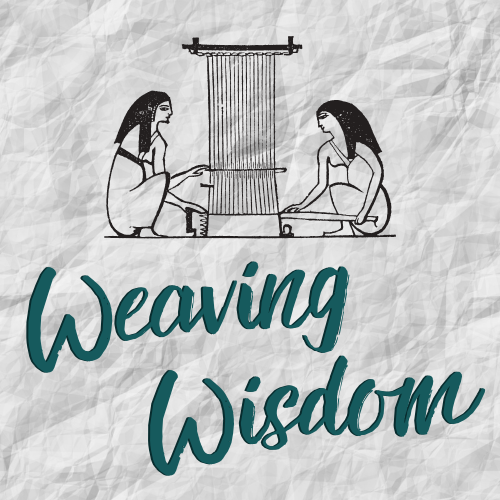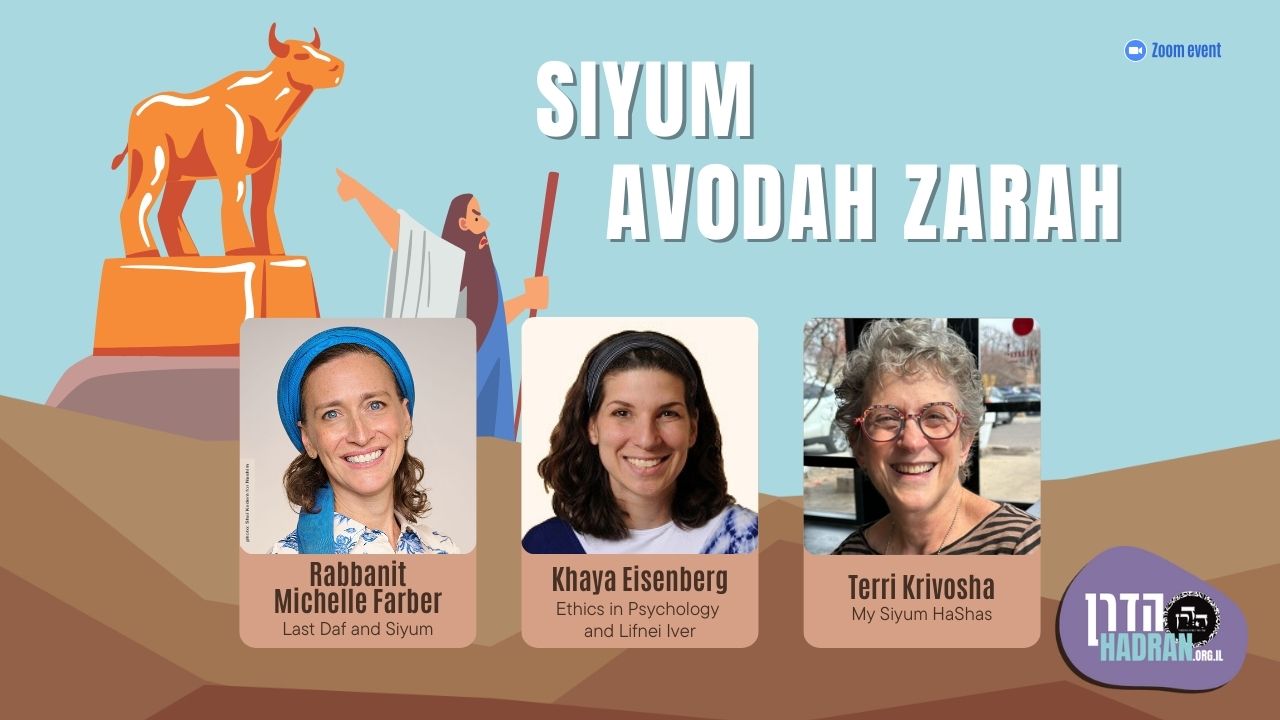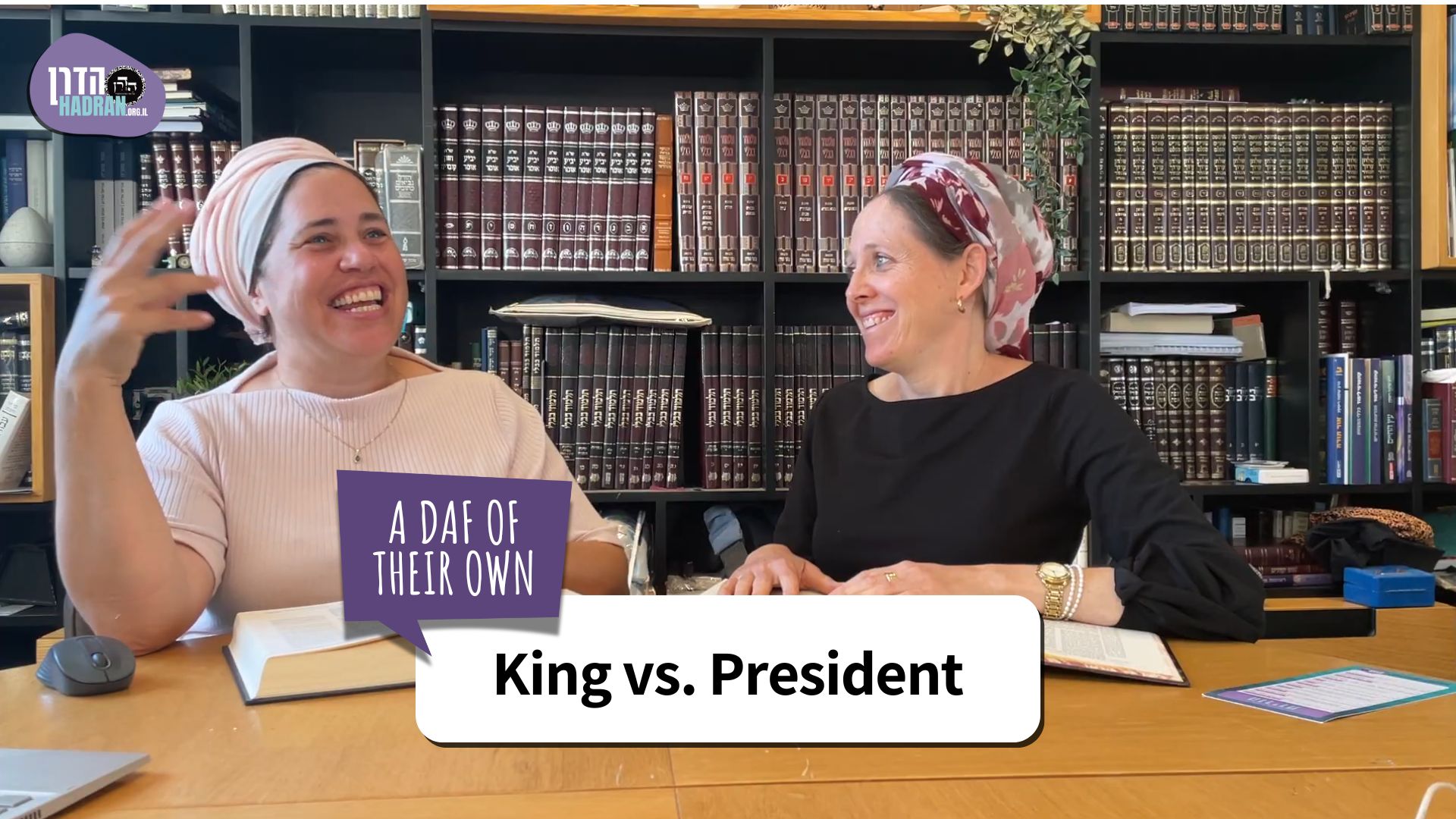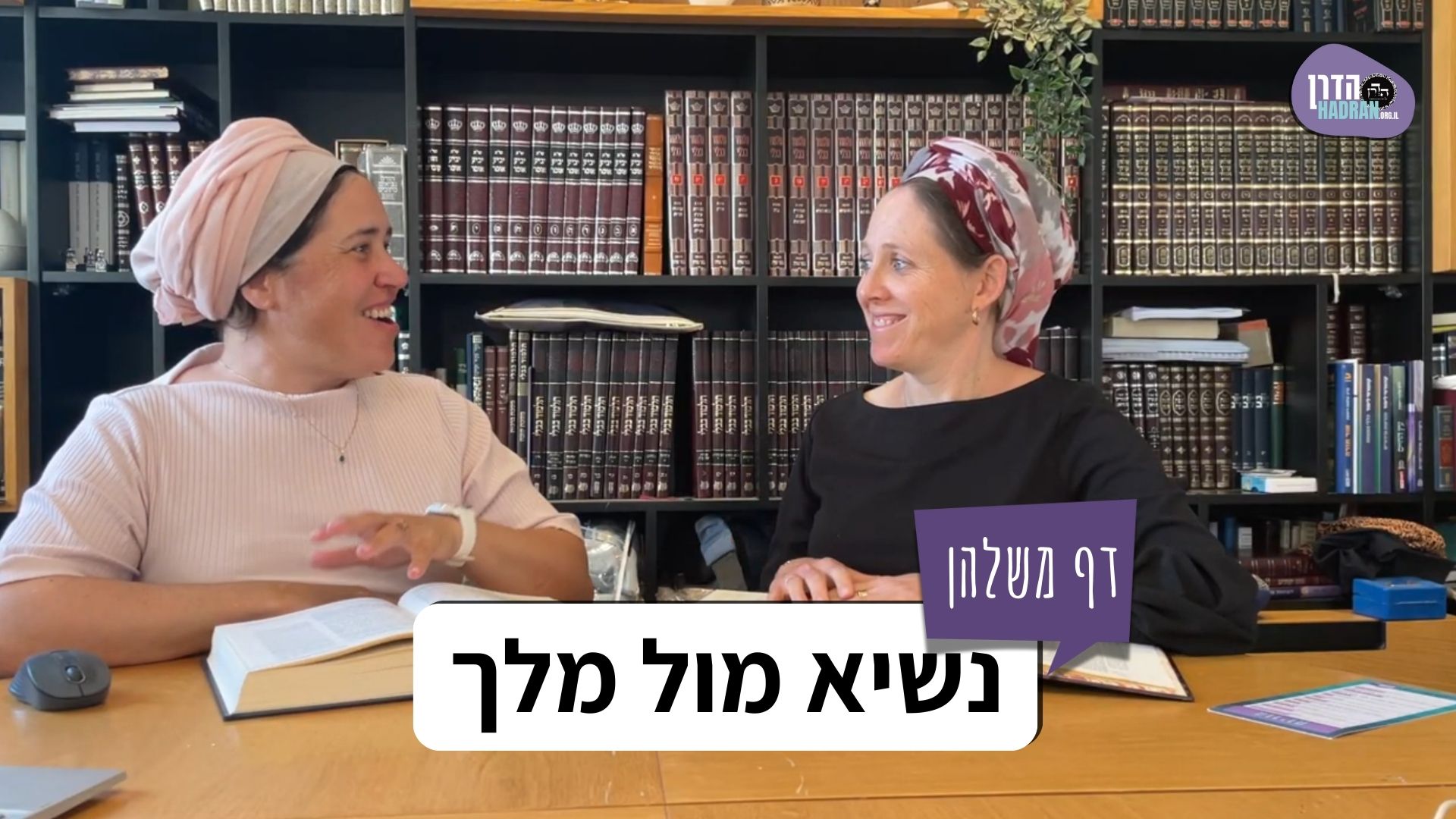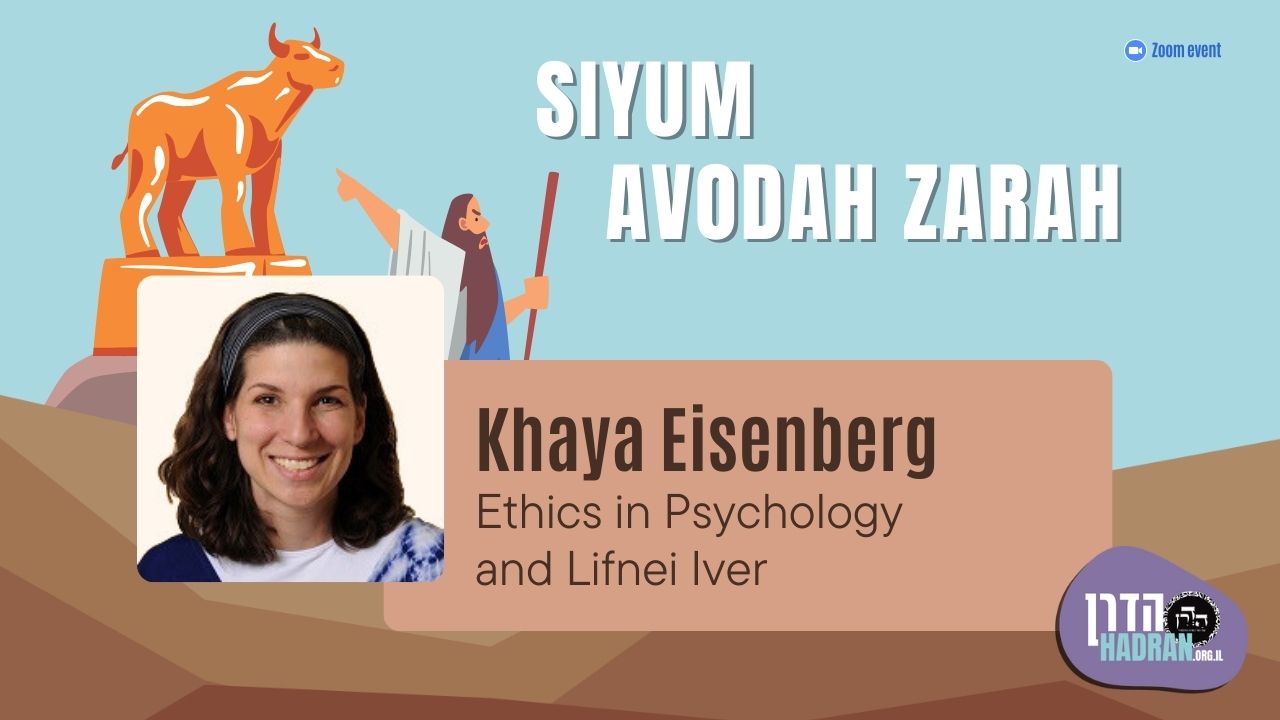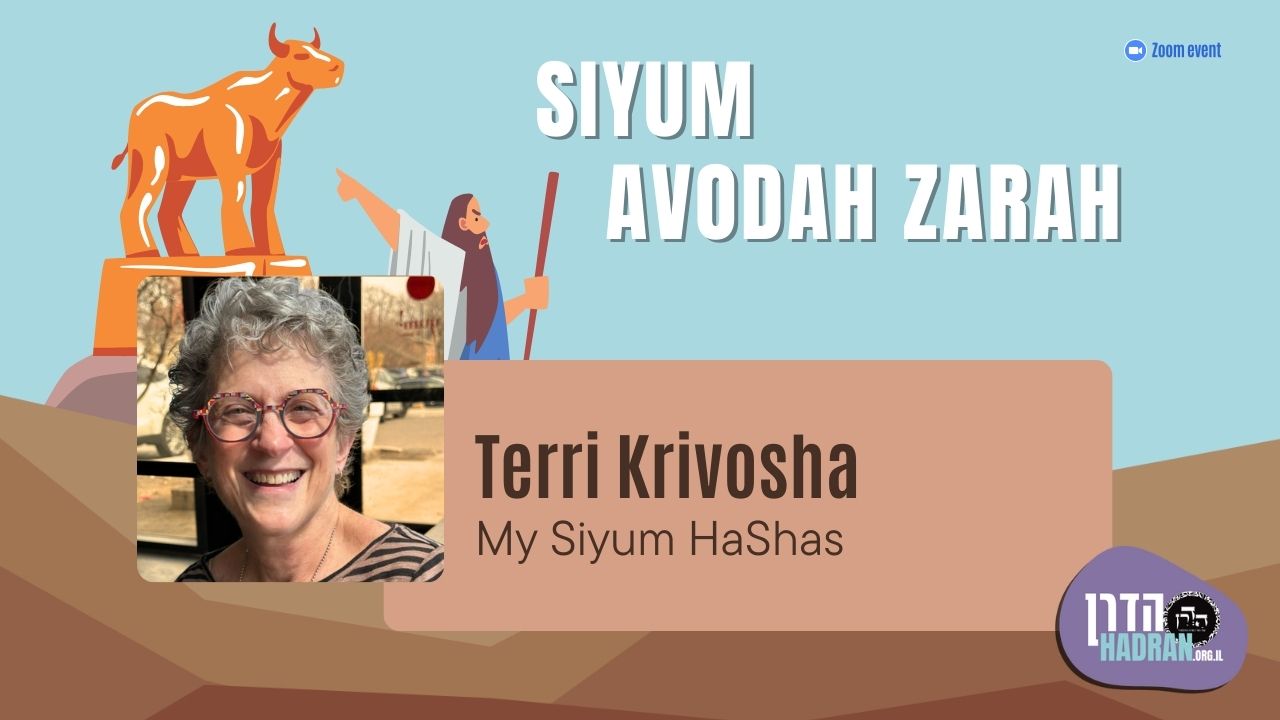Shabbat 18
הַשֶּׁמֶשׁ. אָמַר רַבָּן שִׁמְעוֹן בֶּן גַּמְלִיאֵל: נוֹהֲגִין הָיוּ בֵּית אַבָּא שֶׁהָיוּ נוֹתְנִין כְּלֵי לָבָן לְכוֹבֵס גּוֹי שְׁלֹשָׁה יָמִים קוֹדֶם לַשַּׁבָּת. וְשָׁוִין אֵלּוּ וְאֵלּוּ, שֶׁטּוֹעֲנִין קוֹרַת בֵּית הַבַּד וְעִגּוּלֵי הַגַּת.
the sun, i.e., as long as the sun is shining on Friday. Rabban Shimon ben Gamliel said: The ancestral house of my father, the dynasty of Nesi’im from the house of Hillel, was accustomed to give its white clothes to a gentile launderer no fewer than three days before Shabbat. And, however, these, Beit Shammai, and those, Beit Hillel, agree that, ab initio, one may load the beam of the olive press on the olives on Shabbat eve while it is still day, so that the oil will continue to be squeezed out of the olives on Shabbat. So too, one may load the circular wine press to accelerate the process of producing wine from the grapes.
גְּמָ׳ מַאן תְּנָא נְתִינַת מַיִם לִדְיוֹ זוֹ הִיא שְׁרִיָּיתָן? אָמַר רַב יוֹסֵף: רַבִּי הִיא. דְּתַנְיָא: אֶחָד נוֹתֵן אֶת הַקֶּמַח וְאֶחָד נוֹתֵן אֶת הַמַּיִם — הָאַחֲרוֹן חַיָּיב, דִּבְרֵי רַבִּי. רַבִּי יוֹסֵי אוֹמֵר: אֵינוֹ חַיָּיב עַד שֶׁיְּגַבֵּל.
GEMARA: Before clarifying the matters themselves, the Gemara seeks to determine: Who is the tanna who holds that merely adding water to ink without any additional action constitutes its soaking, and one is liable for doing so on Shabbat, as he performed an act of kneading, one of the primary categories of labor? Rav Yosef said: It is the opinion of Rabbi Yehuda HaNasi. As it was taught in a baraita: In a case where one person adds the flour and another one adds the water into one vessel, the latter one is liable for kneading the dough, which is a prohibited labor on Shabbat, even though he did not actually knead the dough; that is the statement of Rabbi Yehuda HaNasi. Rabbi Yosei says: He is not liable for the prohibited labor of kneading until he actually kneads the dough. According to Rabbi Yehuda HaNasi, merely soaking the dough in water is considered a prohibited labor.
אָמַר לֵיהּ אַבָּיֵי: וְדִילְמָא עַד כָּאן לָא קָאָמַר רַבִּי יוֹסֵי אֶלָּא בְּקֶמַח, דְּבַר גִּיבּוּל הוּא. אֲבָל דְּיוֹ דְּלָאו בַּר גִּיבּוּל הוּא, אֵימָא לִיחַיַּיב! לָא סָלְקָא דַּעְתָּךְ, דְּתַנְיָא: אֶחָד נוֹתֵן אֶת הָאֵפֶר וְאֶחָד נוֹתֵן אֶת הַמַּיִם — הָאַחֲרוֹן חַיָּיב, דִּבְרֵי רַבִּי. רַבִּי יוֹסֵי בְּרַבִּי יְהוּדָה אוֹמֵר: עַד שֶׁיְּגַבֵּל.
Abaye said to Rav Yosef: And perhaps Rabbi Yosei only stated that actual kneading is required to be liable for performing the prohibited labor of kneading in the case of flour, which can be kneaded; however, ink, which cannot be kneaded, say that its soaking is considered a full-fledged prohibited labor, and he will therefore be liable, even according to the opinion of Rabbi Yosei. The Gemara rejects this: It should not enter your mind to say so, as it was taught in a baraita: In a case where one places the ashes and one adds the water, the latter one is liable, although he did not knead them. That is the statement of Rabbi Yehuda HaNasi. Rabbi Yosei, son of Rabbi Yehuda, says: He is not liable until he actually kneads them. Apparently, according to the opinion of Rabbi Yosei, son of Rabbi Yehuda, he is only liable for committing the prohibited labor of kneading on Shabbat if he actually kneads the mixture, as he stated his halakha even with regard to ashes, which cannot be kneaded.
וְדִילְמָא מַאי ״אֵפֶר״ — עָפָר דְּבַר גִּיבּוּל הוּא?! וְהָתַנְיָא ״אֵפֶר״, וְהָתַנְיָא ״עָפָר״! מִידֵּי גַּבֵּי הֲדָדֵי תַּנְיָא?
The Gemara asks: And perhaps, what is the meaning of ashes [efer] mentioned here? Perhaps it is soil [afar], which can be kneaded. In that case he is not liable until he actually kneads the mixture. However, with regard to ashes, which cannot be kneaded, Rabbi Yosei, son of Rabbi Yehuda, also holds that even if he did not actually knead the mixture he is liable. The Gemara rejects this: Wasn’t the dispute taught in one baraita with regard to ashes, and wasn’t it taught in another baraita with regard to soil? In both cases, Rabbi Yosei, son of Rabbi Yehuda, disagreed. The Gemara rejects this proof: Were they taught next to each other? Had both of these baraitot been taught together, it would have been truly possible to arrive at the conclusion that Rabbi Yosei, son of Rabbi Yehuda, disagrees both in the case of ashes and in the case of soil. However, since the baraita that speaks about ashes was taught elsewhere by a different amora who cited it in the name of Rabbi Yosei, the difference in language does not prove that Rabbi Yosei disagrees in both cases.
תָּנוּ רַבָּנַן: פּוֹתְקִין מַיִם לַגִּינָּה עֶרֶב שַׁבָּת עִם חֲשֵׁיכָה וּמִתְמַלֵּאת וְהוֹלֶכֶת כׇּל הַיּוֹם כּוּלּוֹ, וּמַנִּיחִין מוּגְמָר תַּחַת הַכֵּלִים עֶרֶב שַׁבָּת וּמִתְגַּמְּרִין וְהוֹלְכִין כׇּל הַיּוֹם כּוּלּוֹ, וּמַנִּיחִין גׇּפְרִית תַּחַת הַכֵּלִים עֶרֶב שַׁבָּת עִם חֲשֵׁיכָה וּמִתְגַּפְּרִין וְהוֹלְכִין כׇּל הַשַּׁבָּת כּוּלָּהּ, וּמַנִּיחִין קִילוֹר עַל גַּבֵּי הָעַיִן וְאִיסְפְּלָנִית עַל גַּבֵּי מַכָּה עֶרֶב שַׁבָּת עִם חֲשֵׁיכָה וּמִתְרַפֵּאת וְהוֹלֶכֶת כׇּל הַיּוֹם כּוּלּוֹ. אֲבָל אֵין נוֹתְנִין חִטִּין לְתוֹךְ הָרֵיחַיִם שֶׁל מַיִם אֶלָּא בִּכְדֵי שֶׁיִּטָּחֲנוּ מִבְּעוֹד יוֹם.
The Sages taught in a Tosefta: One may open a canal that passes adjacent to a garden on Shabbat eve at nightfall, so that water will flow into a garden and the garden continuously fills with water all day long on Shabbat. Similarly, one may place incense, perfumed herbs placed on coals to produce a fragrance, on coals beneath the clothes on Shabbat eve and the clothes may be continuously perfumed all day long. And, similarly, one may place sulfur beneath the silver vessels on Shabbat eve at nightfall for the purpose of coloring the vessels, and they may be continuously exposed to sulfur all day long. And one may place an eye salve [kilor] on the eye and a bandage [ispelanit] smeared with cream on a wound on Shabbat eve at nightfall, and the wound may continuously heal all day long on Shabbat. However, one may not place wheat kernels into the water mill unless he does so in a way so that they will be ground while it is still day on Friday and not on Shabbat.
מַאי טַעְמָא? אָמַר רַבָּה: מִפְּנֵי שֶׁמַּשְׁמַעַת קוֹל. אָמַר לֵיהּ רַב יוֹסֵף: וְלֵימָא מָר מִשּׁוּם שְׁבִיתַת כֵּלִים! דְּתַנְיָא: ״וּבְכֹל אֲשֶׁר אָמַרְתִּי אֲלֵיכֶם תִּשָּׁמֵרוּ״ — לְרַבּוֹת שְׁבִיתַת כֵּלִים. אֶלָּא אָמַר רַב יוֹסֵף: מִשּׁוּם שְׁבִיתַת כֵּלִים.
The Gemara asks: What is the reason that the baraita prohibited a mill and permitted other prohibited labor? Rabba said: Because it makes noise and the public will hear the mill grinding on Shabbat. Although no prohibited labor is being performed, doing so displays contempt for Shabbat. Therefore, the Sages prohibited it. Rav Yosef said to Rabba: And let the Master say a better reason, due to the obligation to ensure the resting of utensils. Even the utensils of a Jewish person may not be used for prohibited labor on Shabbat. As it was taught in halakhic midrash, the Mekhilta: That which is stated: “And in all that I said to you, take heed” (Exodus 23:13), is an allusion to matters mentioned in the Oral Torah. It comes to include the resting of utensils on Shabbat. Rather, Rav Yosef said: The reason for the prohibition of the mill on Shabbat is due to the resting of utensils.
וְהַשְׁתָּא דְּאָמְרַתְּ לְבֵית הִלֵּל אִית לְהוּ שְׁבִיתַת כֵּלִים דְּאוֹרָיְיתָא, גׇּפְרִית וּמוּגְמָר מַאי טַעְמָא שָׁרוּ? מִשּׁוּם דְּלָא קָעָבֵיד מַעֲשֶׂה. אוּנִּין שֶׁל פִּשְׁתָּן מַאי טַעְמָא שָׁרוּ — מִשּׁוּם דְּלָא עָבֵיד מַעֲשֶׂה, וּמֵינָח נַיְיחָא. מְצוּדַת חַיָּה וְעוֹף וְדָגִים דְּקָא עָבֵיד מַעֲשֶׂה, מַאי טַעְמָא שָׁרוּ? הָתָם נָמֵי בְּלֶחִי וְקוּקְרֵי דְּלָא קָעָבֵיד מַעֲשֶׂה.
Since the obligation of resting utensils on Shabbat was mentioned, the Gemara says: Now that you said that Beit Hillel also hold that resting utensils on Shabbat is required by Torah law, with regard to sulfur and incense on coals that are placed under silver vessels and clothes, respectively, what is the reason that the Sages permitted this on Shabbat? Isn’t that performed on Shabbat in utensils? The Gemara answers: Because the utensil itself does not perform an action when the incense or sulfur is burning. With regard to the bundles of flax, what is the reason that they permitted placing them in the oven on Shabbat eve at nightfall to dry, even though the oven is performing a prohibited labor on Shabbat? Because it does not perform an action; rather, on the contrary, it sits idle in its place and the prohibited labor occurs on its own. However, with regard to traps of an animal, and a bird, and a fish, which perform a bona fide action of trapping, what is the reason that they permitted spreading them on Shabbat eve at nightfall? The Gemara explains: There too, it is referring to a fish hook and nets [kokrei], which perform no action. They stand in place, and the fish comes to them and is trapped. Indeed, a trap that performs an action is prohibited.
וְהַשְׁתָּא דְּאָמַר רַב אוֹשַׁעְיָא אָמַר רַב אַסִּי: מַאן תְּנָא שְׁבִיתַת כֵּלִים דְּאוֹרָיְיתָא — בֵּית שַׁמַּאי הִיא וְלָא בֵּית הִלֵּל, לְבֵית שַׁמַּאי בֵּין קָעָבֵיד מַעֲשֶׂה בֵּין דְּלָא קָעָבֵיד מַעֲשֶׂה — אָסוּר. לְבֵית הִלֵּל אַף עַל גַּב דְּקָעָבֵיד מַעֲשֶׂה — שְׁרֵי. וְהַשְׁתָּא דְּאָמְרַתְּ דִּלְבֵית שַׁמַּאי אַף עַל גַּב דְּלָא עָבֵיד מַעֲשֶׂה — אָסוּר, אִי הָכִי,
And now that Rav Oshaya said that Rav Asi said: Who is the tanna who states that the obligation of resting utensils on Shabbat is by Torah law? The tanna is Beit Shammai and not Beit Hillel. Consequently, according to Beit Shammai, whether the utensil performs an action or whether it does not perform an action, it is prohibited. And according to Beit Hillel, even though it performs an action, it is nevertheless permitted. The Gemara asks: And now that you said that according to Beit Shammai even though the utensil does not perform an action it is prohibited, if so,
מוּגְמָר וְגׇפְרִית מַאי טַעְמָא שָׁרוּ בֵּית שַׁמַּאי? הָתָם מַנַּח אַאַרְעָא. גִּיגִית וְנֵר וּקְדֵרָה וְשַׁפּוּד מַאי טַעְמָא שָׁרוּ בֵּית שַׁמַּאי? דְּמַפְקַר לְהוּ אַפְקוֹרֵי.
with regard to placing incense and sulfur beneath clothes and silver vessels, respectively, what is the reason Beit Shammai permitted this? The Gemara answers: The case under discussion was not one where the incense was placed in a vessel; rather, there, the incense was placed on the ground, and therefore there was no utensil that was obligated to rest. The Gemara asks further: A tub in which fruit or grains are placed to ferment into beer, and where they stay for an extended period; and a Shabbat lamp; and a pot in which food is being cooked, which they place on the fire while it is still day; and a spit [shapud] on which they placed food to roast while it is still day; what is the reason Beit Shammai permitted placing them on Shabbat eve while it is still day even though the prohibited labor continues over time, including on Shabbat? The Gemara answers: These are cases where he declares the utensils ownerless. According to Beit Shammai, the utensils must be declared ownerless while it is still day. Once the utensils are declared ownerless, they no longer belong to a Jew and, consequently, there is no obligation to let them rest.
מַאן תְּנָא לְהָא דְּתָנוּ רַבָּנַן: לֹא תְּמַלֵּא אִשָּׁה קְדֵרָה עֲסָסִיּוֹת וְתוּרְמְסִין וְתַנִּיחַ לְתוֹךְ הַתַּנּוּר עֶרֶב שַׁבָּת עִם חֲשֵׁכָה, וְאִם נְתָנָן — לְמוֹצָאֵי שַׁבָּת אֲסוּרִין בִּכְדֵי שֶׁיֵּעָשׂוּ. כַּיּוֹצֵא בּוֹ: לֹא יְמַלֵּא נַחְתּוֹם חָבִית שֶׁל מַיִם וְיַנִּיחַ לְתוֹךְ הַתַּנּוּר עֶרֶב שַׁבָּת עִם חֲשֵׁכָה, וְאִם עָשָׂה כֵּן — לְמוֹצָאֵי שַׁבָּת אֲסוּרִין בִּכְדֵי שֶׁיֵּעָשׂוּ. לֵימָא בֵּית שַׁמַּאי הִיא וְלָא בֵּית הִלֵּל? אֲפִילּוּ תֵּימָא בֵּית הִלֵּל, גְּזֵירָה שֶׁמָּא יְחַתֶּה בַּגֶּחָלִים.
The Gemara asks: Based on these conclusions, who is the tanna who taught this Tosefta that the Sages taught: A woman may not fill up a pot with pounded wheat and lupines, a type of legume, and place them in the oven to cook on Shabbat eve at nightfall. And if she placed them in the oven, not only may they not be eaten on Shabbat itself, but even at the conclusion of Shabbat they are forbidden for a period of time that would be sufficient for them to be prepared, i.e., the time it takes to cook the dish from the beginning, so that he will derive no benefit from a prohibited labor performed on Shabbat. Similarly, the Tosefta said: A baker may not fill a barrel of water and place it in the oven on Shabbat eve at nightfall to boil the water that is in the barrel, and if he did so, even at the conclusion of Shabbat it is forbidden for the period of time that would be sufficient for it to be prepared from the beginning. Let us say that this Tosefta is in accordance with the opinion of Beit Shammai and not in accordance with the opinion of Beit Hillel. The Gemara answers: Even if you say that it is in accordance with the opinion of Beit Hillel, in those cases the Sages issued a decree due to concern lest the one cooking stoke the coals on Shabbat in order to accelerate the cooking.
אִי הָכִי מוּגְמָר וְגׇפְרִית נָמֵי לִגְזוֹר! הָתָם לָא מְחַתֵּי לְהוּ, דְּאִי מְחַתֵּי סָלֵיק בְּהוּ קוּטְרָא, וְקָשֵׁי לְהוּ. אוּנִּין שֶׁל פִּשְׁתָּן נָמֵי לִיגְזוֹר! הָתָם, כֵּיוָן דְּקָשֵׁי לְהוּ זִיקָא, לָא מְגַלּוּ לֵיהּ: צֶמֶר לַיּוֹרָה לִיגְזוֹר! אָמַר שְׁמוּאֵל: בְּיוֹרָה עֲקוּרָה. וְנֵיחוּשׁ שֶׁמָּא מֵגִיס בָּהּ! בַּעֲקוּרָה וְטוּחָה.
The Gemara asks: If so, with regard to incense and sulfur, the Sages should also issue a decree that prohibits placing them beneath clothes and silver vessels, respectively, on Shabbat eve at nightfall. The Gemara answers: There, in that case, he will not stoke them, as if he stokes them smoke will rise into the garments and the silver, and that is damaging for them. The smoke from the wood will ruin the fragrance and the coating of sulfur. The Gemara asks further: With regard to bundles of flax, the Sages should also issue a decree. The Gemara answers: There, since wind is damaging for them, he does not expose them, and he will not come to stoke the coals. The Gemara asks further: With regard to wool placed in the dyer’s kettle, the Sages should also issue a decree. Shmuel said: The mishna is referring to a pot that is removed from the fire, where there is no concern lest he stoke the coals. The Gemara still asks: Let us be concerned lest he stir that same pot, thereby accelerating the cooking, which is prohibited by Torah law. Rather, the mishna is referring to a pot that is removed from the fire and sealed with clay spread around its cover to prevent it from opening.
וְהַשְׁתָּא דְּאָמַר מָר גְּזֵירָה שֶׁמָּא יְחַתֶּה בַּגֶּחָלִים, הַאי קְדֵרָה חַיְּיתָא שְׁרֵי לְאַנּוּחַהּ עֶרֶב שַׁבָּת עִם חֲשֵׁיכָה בְּתַנּוּרָא. מַאי טַעְמָא? — כֵּיוָן דְּלָא חֲזֵי לְאוּרְתָּא, אַסּוֹחֵי מַסַּח דַּעְתֵּיהּ מִינֵּיהּ וְלָא אָתֵי לְחַתּוֹיֵי גֶּחָלִים. וּבְשִׁיל — שַׁפִּיר דָּמֵי. בְּשִׁיל וְלָא בְּשִׁיל — אֲסִיר. וְאִי שְׁדָא בֵּיהּ גַּרְמָא חַיָּיא — שַׁפִּיר דָּמֵי.
The Gemara comments: And now that the Master said that in these cases the prohibition of placing the pot on the fire is due to a decree issued by the Sages lest he stoke the coals; with regard to this pot of raw meat, it is permitted to place it in an oven on Shabbat eve at nightfall. What is the reason for this? Since it is not fit for consumption during the night, as it will not be cooked by then, he diverts his thoughts from it and will not come to stoke the coals. And the same is true of cooked meat; it is permitted to place it on the fire on Shabbat eve at nightfall. Since it is reasonably cooked, one will not come to stoke the coals to cook it more. Meat that is cooked and not sufficiently cooked is prohibited, as there is concern lest he come to stoke the coals. And if he threw a raw bone into this pot, he may well do so, as due to the bone he will not remove the meat to eat it in the evening.
וְהַשְׁתָּא דְּאָמַר מָר כׇּל מִידֵּי דְּקָשֵׁי לֵיהּ זִיקָא לָא מְגַלּוּ לֵיהּ, הַאי בִּשְׂרָא דְּגַדְיָא וּשְׁרִיק — שַׁפִּיר דָּמֵי. דְּבַרְחָא וְלָא שְׁרִיק — אֲסִיר. דְּגַדְיָא וְלָא שְׁרִיק, דְּבַרְחָא וּשְׁרִיק — רַב אָשֵׁי שָׁרֵי וְרַב יִרְמְיָה מִדִּיפְתִּי אָסַר. וּלְרַב אָשֵׁי דְּשָׁרֵי, וְהָתַנְיָא אֵין צוֹלִין בָּשָׂר בָּצָל וּבֵיצָה אֶלָּא כְּדֵי שֶׁיִּצּוֹלוּ מִבְּעוֹד יוֹם! הָתָם דְּבַרְחָא וְלָא שְׁרִיק.
And now that the Master said that anything for which wind is damaging one does not expose, one could say that with regard to meat of a kid and an oven whose opening is sealed with clay, he may well place it there on Shabbat eve at nightfall. Since the meat of the kid cooks quickly and the opening of the oven is sealed, there is no concern lest he come to stoke the coals. If it is the meat of a ram [barḥa] and the opening of the oven is not sealed with clay, it is prohibited to place it there on Shabbat eve at nightfall. The above are cases where the ruling is clear. However, with regard to the case of the meat of a kid and the opening of the oven is not sealed with clay, or the case of a ram and the opening of the oven is sealed, there is a dispute. Rav Ashi permitted placing it in the oven on Shabbat eve at nightfall, and Rav Yirmeya from Difti prohibited doing so. The Gemara asks: And according to the opinion of Rav Ashi, who permitted placing it there on Shabbat eve at nightfall, wasn’t it taught in a baraita that one may not roast meat, an onion, and an egg on Shabbat eve unless there is sufficient time for them to be roasted while it is still day? Apparently, one may not place meat that is not sufficiently roasted in an oven on Shabbat eve. The Gemara answers: There, the baraita is referring to the meat of a ram and the opening of the oven is not sealed with clay. However, in other cases it is permitted.
אִיכָּא דְּאָמְרִי: דְּגַדְיָא בֵּין שְׁרִיק בֵּין לָא שְׁרִיק — שַׁפִּיר דָּמֵי. דְּבַרְחָא נָמֵי וּשְׁרִיק — שַׁפִּיר דָּמֵי. כִּי פְּלִיגִי דְּבַרְחָא וְלָא שְׁרִיק — דְּרַב אָשֵׁי שָׁרֵי וְרַב יִרְמְיָה מִדִּפְתִּי אָסַר. וּלְרַב אָשֵׁי דְּשָׁרֵי, וְהָתַנְיָא אֵין צוֹלִין בָּשָׂר בָּצָל וּבֵיצָה אֶלָּא כְּדֵי שֶׁיִּצּוֹלוּ מִבְּעוֹד יוֹם! הָתָם בְּבִשְׂרָא אַגּוּמְרֵי. אָמַר רָבִינָא: הַאי קָרָא חַיָּיא — שַׁפִּיר דָּמֵי, כֵּיוָן דְּקָשֵׁי לֵיהּ זִיקָא כְּבִשְׂרָא דְגַדְיָא דָּמֵי.
Others say that with regard to the meat of a kid, whether it is in an oven that is sealed or whether it is in one that is not sealed, everyone agrees that he may well do so. With regard to the meat of a ram, when the opening of the oven is sealed, one may well do so too. Where they disagreed was in the case of the meat of a ram and the opening of the oven was not sealed. Rav Ashi permitted placing it in the oven on Shabbat eve at nightfall, and Rav Yirmeya from Difti prohibited doing so. The Gemara asks: And according to the opinion of Rav Ashi, who permitted this, wasn’t it taught in a baraita that one may only roast meat, an onion, and an egg on Shabbat eve if there is sufficient time for them to be roasted while it is still day? Apparently, one may not place meat that is not sufficiently roasted in an oven on Shabbat eve. The Gemara answers: There, the baraita is referring to the case of meat roasted directly on the coals. In that case, there is greater concern that he will come to stoke the coals. Ravina said: With regard to that raw gourd, one may well place it in a pot on the fire on Shabbat eve at nightfall. The reason for this is that since the wind is damaging for it, it is considered like the meat of a kid.
בֵּית שַׁמַּאי אוֹמְרִים אֵין מוֹכְרִין. תָּנוּ רַבָּנַן, בֵּית שַׁמַּאי אוֹמְרִים: לֹא יִמְכּוֹר אָדָם חֶפְצוֹ לְגוֹי, וְלֹא יַשְׁאִילֶנּוּ, וְלֹא יַלְוֶנּוּ, וְלֹא יִתֵּן לוֹ בְּמַתָּנָה אֶלָּא כְּדֵי שֶׁיַּגִּיעַ לְבֵיתוֹ. וּבֵית הִלֵּל אוֹמְרִים: כְּדֵי שֶׁיַּגִּיעַ לַבַּיִת הַסָּמוּךְ לַחוֹמָה. רַבִּי עֲקִיבָא אוֹמֵר: כְּדֵי שֶׁיֵּצֵא מִפֶּתַח בֵּיתוֹ. אָמַר רַבִּי יוֹסֵי בְּרַבִּי יְהוּדָה: הֵן הֵן דִּבְרֵי רַבִּי עֲקִיבָא, הֵן הֵן דִּבְרֵי בֵּית הִלֵּל — לֹא בָּא רַבִּי עֲקִיבָא אֶלָּא לְפָרֵשׁ דִּבְרֵי בֵּית הִלֵּל.
The full text of the baraita is: Beit Shammai say: One may only sell an item to a gentile on Shabbat eve, and one may only load a burden onto his donkey with him, and one may only lift a burden onto him if the destination of the gentile is near enough that there remains sufficient time for the gentile to arrive at a place near there prior to Shabbat. The Sages taught in a baraita that elaborated upon this dispute between Beit Shammai and Beit Hillel with regard to selling to a gentile on Shabbat eve: Beit Shammai say: A person may not sell his object to a gentile, and lend it to him, and loan him money, and give him an object as a gift on Shabbat eve, unless there is sufficient time for him, the gentile, to reach his house while it is still day. And Beit Hillel say: He is permitted to do this if there is sufficient time for him to reach a house adjacent to the wall of the place where he is going. Rabbi Akiva says: It is permitted to give an object to a gentile on Shabbat eve if there is sufficient time for him to exit the entrance of the Jewish person’s house. What the gentile does afterward is irrelevant. Rabbi Yosei, son of Rabbi Yehuda, said: That is the statement of Rabbi Akiva; that is the statement of Beit Hillel. Rabbi Akiva came only to explain the statement of Beit Hillel. The tanna whose version of Beit Hillel’s statement was: Until he reaches the house adjacent to the wall, held that Beit Hillel’s opinion was similar to Beit Shammai’s opinion. Rabbi Akiva came to elucidate the actual opinion of Beit Hillel.
תָּנוּ רַבָּנַן, בֵּית שַׁמַּאי אוֹמְרִים: לֹא יִמְכּוֹר אָדָם חֲמֵצוֹ לְגוֹי אֶלָּא אִם כֵּן יוֹדֵעַ בּוֹ שֶׁיִּכְלֶה קוֹדֶם הַפֶּסַח, דִּבְרֵי בֵּית שַׁמַּאי. וּבֵית הִלֵּל אוֹמְרִים: כׇּל זְמַן שֶׁמּוּתָּר לְאוֹכְלוֹ — מוּתָּר לְמוֹכְרוֹ. רַבִּי יְהוּדָה אוֹמֵר:
The Sages taught a similar principle in a baraita with regard to another tannaitic dispute. Beit Shammai say: A person may not sell his leaven to a gentile on Passover eve unless he knows that the leaven will be finished before Passover. And Beit Hillel say: As long as it is permitted for the Jew to eat leaven, it is also permitted for him to sell it to a gentile. The Jew ceases to be responsible for the leaven sold to a gentile from the moment it is sold. And Rabbi Yehuda says:



